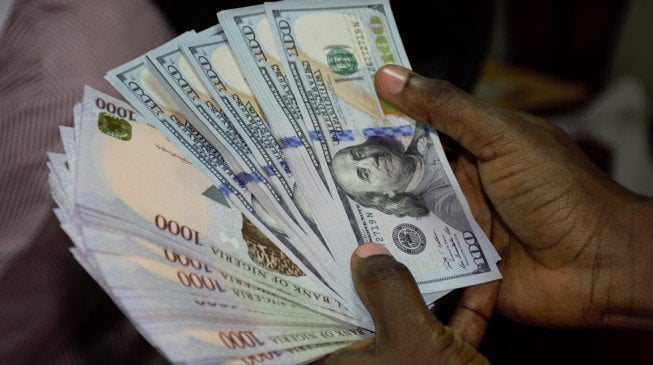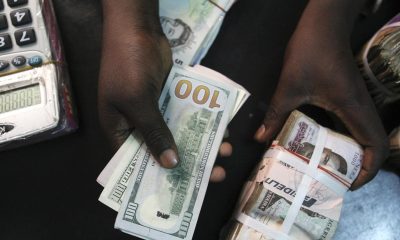Business
Naira Slips To N950 Against US Dollar As Forex Scarcity Worsens

Nigeria’s currency, the Naira, lost more value against the US Dollar on Wednesday after closing at N950/$1 at the parallel market, Naija News understands.
The Naira was said to have closed at N930/$1 at the close of operations on Tuesday, September 12. It, however, sold at N935/$1 and N950/$1 on Wednesday, the following day.
According to Bureau de Change operators, the naira closed at 758.12/$ on Wednesday, from 742.10 on Tuesday at the Investor & Exporter forex window.
The reported figures were captured from the FMDQ, the official trading platform.
A BDC operator, Yusuf Kareem, who spoke to The PUNCH, said, “We commenced trading at 930/$ in the morning and it closed at 950/$ in the evening. The naira has been scarce; we don’t know what is happening.”
Another BDC operator, Sanusi Ibrahim, reportedly told the publication that Naira was bought and sold at N935/$1 and N950/$1 today.
“We don’t know what will happen tomorrow,” Ibrahim reportedly said.
The Association of Bureaux De Change Operators of Nigeria (ABCON), recently, urged the Central Bank of Nigeria (CBN) to grant Bureaux De Change operators digital autonomy to achieve exchange rate convergence.
In a statement, the President, ABCON, Dr Aminu Gwadabe, called on the apex bank to grant a no-objection approval for the BDCs to fully go digital on all their operational correspondences.
He said the move would promote rate convergence, curb volatility in the market, and promote economic growth.
ABCON had, in the past, led its members to achieve rate convergence in 2006, 2009, 2018 to 2020 before the outbreak of COVID-19 in 2020, he said.
Granting digital autonomy to the operators, he noted, would lead to a true market rate discovery, enhance the achievement of the Federal Government harmonised foreign exchange rate policies, and promote effective monitoring of BDCs’ transactions for statutory and regulatory requirements.
Nigeria’s Trade Deficit Hits N5.7 Trillion In Q2 2023
Meanwhile, Foreign Trade Statistics reports last week revealed that Nigeria’s trade deficit in the second quarter of 2023 hit N5.7 trillion.
According to the report published by the National Bureau of Statistics (NBS), Nigeria’s total trade stood at N12.7 trillion, while total exports stood at N7tn and total imports amounted to N5.7 trillion.
The report claimed that Nigeria had raked in N3.48 trillion as Revenue from Value Added Tax (VAT) and Company Income Tax, CIT, in the first half of 2023 (H1’23).
Naija News reports that the figure reflects a 17 per cent increase Year-on-Year (YoY) from N2.97 trillion in the corresponding period of 2022, H1’22.
According to data from the National Bureau of Statistics(NBS), VAT revenue stood at N1.49 trillion in H1’23, rising Yo Y by 25 per cent from N1.19 trillion in H1’22.
The NBS, in its report on Monday, revealed that CIT also increased YoY by 11.7 per cent to N1.99 trillion in H1’23 from N1.78 trillion in H1’22.
The report further stated that “On the aggregate, VAT for Q2’23 was reported at N781.35 billion, showing a growth rate of 10.11 per cent on a QoQ basis from N709.59 billion in Q1’23.
Local payments recorded were N512.03 billion, Foreign VAT Payments were N142.63 billion, while import VAT contributed N126.69 billion in Q2’23. “On a QoQ basis, the activities of extraterritorial organizations and bodies recorded the highest growth rate with 212.06 per cent, followed by real estate activities with 123.09 per cent.
“On the other hand, activities of households as employers, undifferentiated goods- and services-producing activities of households for own use had the lowest growth rate with –57.06 per cent, followed by agriculture, forestry, and fishing with –32.86 per cent.
In terms of sectoral contributions, the top three largest shares in Q2’23 were manufacturing with 29.64 per cent; information and communication with 21.19 per cent; and financial and insurance activities with 11.18 per cent.”


